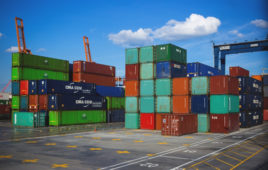In recent times, the enforcement of Withhold Release Orders (WROs) pertaining to imported solar panels has become a matter of paramount importance. This article aims to provide an in-depth analysis and update on the measures taken to strengthen the implementation of WROs, ensuring compliance with trade regulations and safeguarding domestic markets.
The Evolving Landscape: Strengthening WRO Enforcement
With the surge in demand for renewable energy sources, solar panels have emerged as a crucial component in meeting global sustainability goals. However, concerns regarding unfair trade practices and potential labor violations associated with imported solar panels have prompted authorities to enhance their vigilance.
To address these concerns effectively, regulatory bodies have intensified efforts by collaborating with industry stakeholders and implementing stringent monitoring mechanisms. By leveraging advanced technologies such as artificial intelligence and data analytics, customs officials can now identify suspicious shipments more efficiently while minimizing disruptions to legitimate trade flows.
Furthermore, partnerships between government agencies at both national and international levels are being forged to share information on non-compliant entities involved in the production or distribution of substandard or illicitly manufactured solar panels. These collaborative endeavors aim not only to protect consumers but also foster fair competition within the market.
Promoting Transparency through Enhanced Documentation
A key aspect of bolstering WRO enforcement lies in promoting transparency throughout the supply chain. Recognizing this imperative need, importers are now required to provide comprehensive documentation that verifies adherence to ethical labor practices during manufacturing processes.
This documentation includes evidence demonstrating compliance with internationally recognized standards such as those set forth by organizations like International Labour Organization (ILO). By mandating such requirements, regulators ensure that imported solar panels meet not only quality benchmarks but also adhere strictly to social responsibility norms.
Moreover, the implementation of blockchain technology is being explored to enhance traceability and accountability within the solar panel supply chain. This innovative approach would enable stakeholders to track each stage of production, from raw materials sourcing to final installation, thereby mitigating the risk of non-compliant or counterfeit products entering the market.
Achieving Long-term Sustainability: The Way Forward
As global efforts intensify towards achieving a sustainable future, it becomes imperative for nations to collaborate in strengthening WRO enforcement on imported solar panels. By fostering international partnerships and sharing best practices, countries can collectively address challenges related to unfair trade practices and labor violations.
In addition, investing in research and development initiatives aimed at advancing renewable energy technologies domestically will not only reduce reliance on imports but also ensure compliance with stringent quality standards. This proactive approach will foster innovation while bolstering domestic manufacturing capabilities.
In conclusion, as concerns surrounding imported solar panels persist, regulatory bodies are taking significant strides towards enhancing WRO enforcement. Through collaborative efforts with industry stakeholders and robust monitoring mechanisms backed by advanced technologies, transparency throughout the supply chain is being promoted. By prioritizing ethical labor practices and exploring cutting-edge solutions such as blockchain technology, nations can pave the way for a sustainable future powered by reliable and compliant solar panels.
